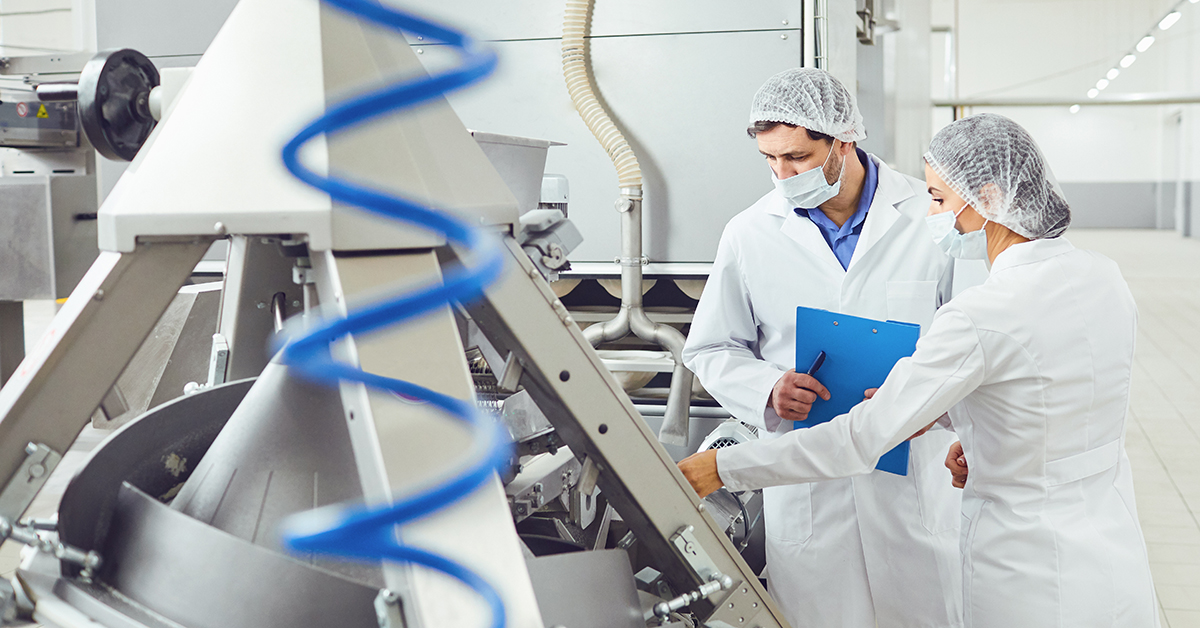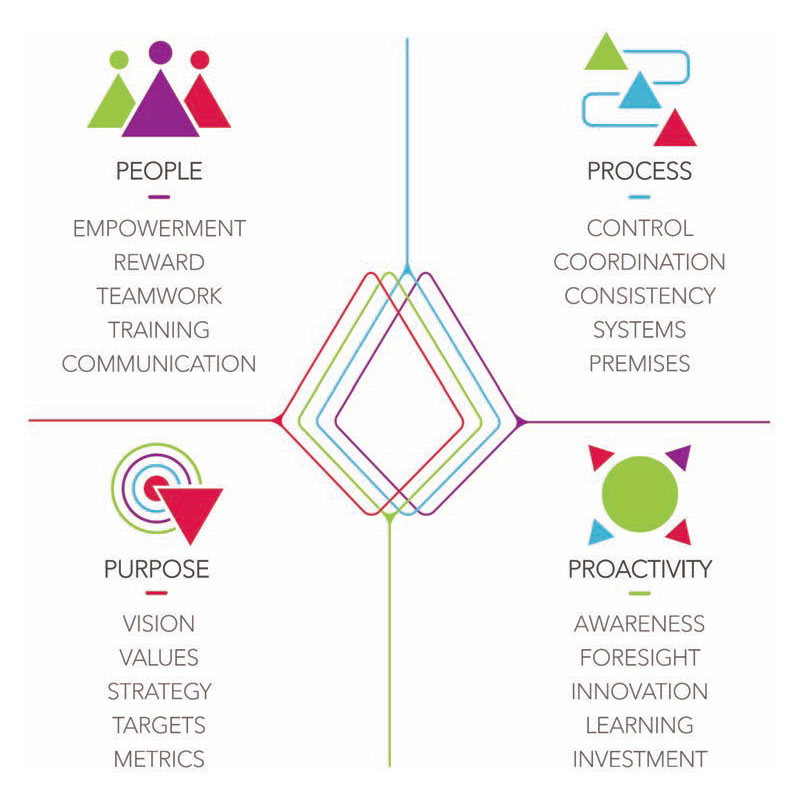
Talking safety and quality Culture Excellence at Campden BRI’s 6th Annual Seminar
30 March 2021 | Emma Samuel, ZERO2FIVE Food Industry Centre, Cardiff Metropolitan University
Emma Samuel is a third year Knowledge Economy Skills Scholarships (KESS 2) PhD student, affiliated with the ZERO2FIVE Food Industry Centre based at Cardiff Metropolitan University. Emma's PhD project (collaboratively supported by a food manufacturing and processing business partner) focuses on assessing hand hygiene compliance and food safety culture with a view to implementing bespoke interventions to enhance food safety behaviour. KESS2 is a pan-Wales higher level skills initiative led by Bangor University on behalf of the HE sector in Wales; partly funded by the Welsh Government’s European Social Fund (ESF) convergence programme for West Wales and the Valleys.
A warm welcome to the first virtual Safety and Quality Culture Excellence Seminar
Now in its sixth year, Campden BRI in partnership with Taylor Shannon International (TSI), delivered the Safety and Quality Culture Excellence seminar suite to an online audience on the 3, 7 and 16 December 2020. Promising what would be a “virtual feast” for food safety professionals, Bertrand Emond (Head of Membership and Training, Campden BRI) opened the session with an overview of what we could expect from this year’s remote – but no less delicious - menu. Three two-hour sessions would lead us through the intricacies of driving positive food safety culture change in practice (Session 1), managing culture at a distance in times of COVID-19 (Session 2) as well as a review of new culture trends and topics exploring how small food businesses can be supported in developing their own food safety culture journey (Session 3).
By way of introduction, Bertrand looked back on the many positive and exciting food safety culture developments that had taken place around the globe in 2020, including:
- The launch of GFSI’s 2020 Benchmarking Requirements including unannounced audits to encourage businesses to be ‘audit ready’ at all times and new elements relating to food safety culture. This builds on the GFSI’s commitment to the topic as contained in their 2018 position paper ‘A Culture of Food Safety’;
- Following BRCGS’ lead in advancing food safety culture, IFS 7, SQF 9 and FSSC 22000 all now include food safety culture requirements applicable to all parts of the food system;
- In the USA, at the GFSI 2020 Conference, Frank Yiannas (Deputy Commissioner forFood Policy and Response at the US FDA) reiterated once again how important food safety culture was while announcing the launch of the FDA’s ‘Food For Thought’; part of an initiative designed to support a ‘New Era of Smarter Food Safety’. At the core of this initiative is food safety culture, demonstrating that ‘strong cultures’ embrace food safety;
- In the UK, the FSA continue to progress their ‘Regulating Our Future’ plans with further research published looking at ‘Organisations,Culture & Food Safety’. This builds on earlier work in 2012 including development of a toolkit for Environmental Health Practitioners to assess culture during inspections;
- In Australia, Dairy Food Safety (Victoria) shared insights into their food safety culture journey, highlighting the importance of a mature culture and benefits for business. Factsheets as well as a copy of DFS’ food safety culture maturity assessment model are freely available here.
- Serving as a reference for international food trade standards, the Codex Alimentarius Commission – in recognising the importance of maintaining a positive food safety culture – approved guiding principles for inclusion in the October 2020 revision of the General Principles of Food Hygiene (CXC 1-1969, page 3);
- As a result of this, the general requirements for food safety culture have also been adopted into EC Regulation 852/2004 which can be found here;
- Publication of the BSI’s Publicly Available Specification (PAS) 320 ‘A practical guide to a culture of food safety’ is expected in Q2, 2021 which will offer ‘how to’ guidance on implementing the new regulatory and standard requirements.
- In September 2020, the final Committee Report investigating the BOEING 737 MAX design, development and certification was released. Although it makes for a sober read, as a case study, there are many hard lessons that are relatable to the food industry. It 3 highlights the fundamental flaws of having conflicting interests and a toxic organisational culture;
- The second World Health Organization (WHO) World Food Safety Day (WFSD) was celebrated on the 7 June 2020. Many food companies around the world use WFSD as a focal point to create exciting food safety engagement and often generate useful resources which can inspire your own plans. Resources (in many languages) are also available on the WHO WFSD site;
- Other useful resources continue to be found at stopfoodborneillness.org and fightback.org.
- And finally, Campden BRI and Intertek Alchemy’s 2020 Global Food Safety Training Survey (now in its sixth year) revealed a very clear message; food safety culture is on the rise. It is therefore imperative that the message - and requirements - start cascading all the way down the supply chain. More information and survey infographics can be found on Intertek Alchemy’s website.
Bertrand reminded the audience that ‘culture’ is the “shared values, beliefs and norms that affect mind-set and behaviour toward food safety in, across and throughout an organisation” (Global Food Safety Initiative, 2018). As a result, the derived benefits of working on culture throughout the supply chain are obvious, including increasing customer satisfaction, employee motivation, enhanced abilities, better decision making and gains in revenue and growth to name a few. As the work progresses, ‘people’ get stronger and stronger until eventually they choose to do the right thing at all times (even under pressure and most certainly when no-one is looking). TSI’s Culture Excellence programme - assessing 20 dimensional food safety culture components across four key categories – can support that culture journey with an in-depth assessment of the prevailing workplace culture.

Figure 1. Culture Excellence model
Culture excellence white paper
Click below to download a copy of the white paper in PDF format
Culture Excellence Program
The Culture Excellence Program is an effective solution for the measurement, analysis, benchmarking, and sustained improvement of safety and quality culture.





